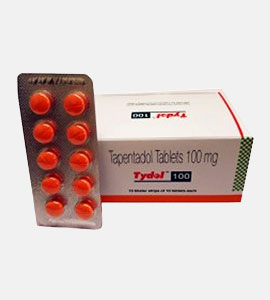What is tapentadol?
Tapentadol is an opioid pain medication. An opioid is sometimes called a narcotic.
Tapentadol is used to treat moderate to severe pain.
The extended-release form of tapentadol (Nucynta ER) is for around-the-clock treatment of pain that is not controlled by other medicines. Nucynta ER is not for use on an as-needed basis for pain.
What kind of pain Tapentadol treat
Two main types of pathophysiology are often the cause for pain in the majority of patients, nociceptive pain and neuropathic pain. Common ypes of chronic pain, including diabetic peripheral neuropathy and conditions that originate or are common to the low back. Patients with chronic pain conditions may have both a neuropathic and a nociceptive component.
• Diabetic peripheral neuropathy. A complication of diabetes in which high blood glucose may damage the tiny blood vessels carrying oxygen and nutrients to the small nerves in the hands and feet.
• Intervertebral disc disease. A condition typically caused by ageing in which discs in the vertebral column deteriorate or herniate, causing them to lose fluid, elasticity, and shock-absorbing capabilities.
• Radiculopathy. Nerve damage typically caused by inflammation or impingement of a nerve root, causing weakness or pain radiating the length of the nerve.
• Arthritis. There are several forms of arthritis of the spine (known altogether as spondyloarthropathies).
• Osteoarthritis. Occurs when the cartilage that protects the bones of the spinal area breaks down, causing bones to rub together, which leads to spurs that press against nerves.
• Rheumatoid Arthritis. Occurs when the immune system attacks soft tissue surrounding the joints of the spine, which can place pressure on the spinal cord or spinal nerve roots.
• Ankylosing Spondylitis. An inflammatory disease in which the ligaments and bones of the spine fuse together, resulting in a stiff, fused, painful spine.
• Spondylolisthesis. A condition in which a lower vertebra slides out of place on top of the vertebra below it, commonly between L4 and L5, causing low back pain.
Tapentadol side effects
Get emergency medical help if you have signs of an allergic reaction to tapentadol: hives; chest pain, fast heartbeats, difficult breathing; swelling of your face, lips, tongue, or throat.
Opioid medicine can slow or stop your breathing, and death may occur. A person caring for you should seek emergency medical attention if you have slow breathing with long pauses, blue colored lips, or if you are hard to wake up.
Call your doctor at once if you have:
• noisy breathing, sighing, shallow breathing, breathing that stops during sleep;
• a light-headed feeling, like you might pass out;
• agitation, feeling hot;
• seizure (convulsions);
• severe drowsiness or dizziness, confusion, problems with speech or balance;
• infertility missed menstrual periods;
• impotence, sexual problems, loss of interest in sex; or
• low cortisol levels - nausea, vomiting, loss of appetite, dizziness, worsening tiredness or weakness.
Common tapentadol side effects may include:
• constipation, mild nausea, stomach pain;
• headache, tired feeling; or
• mild drowsiness or dizziness.






